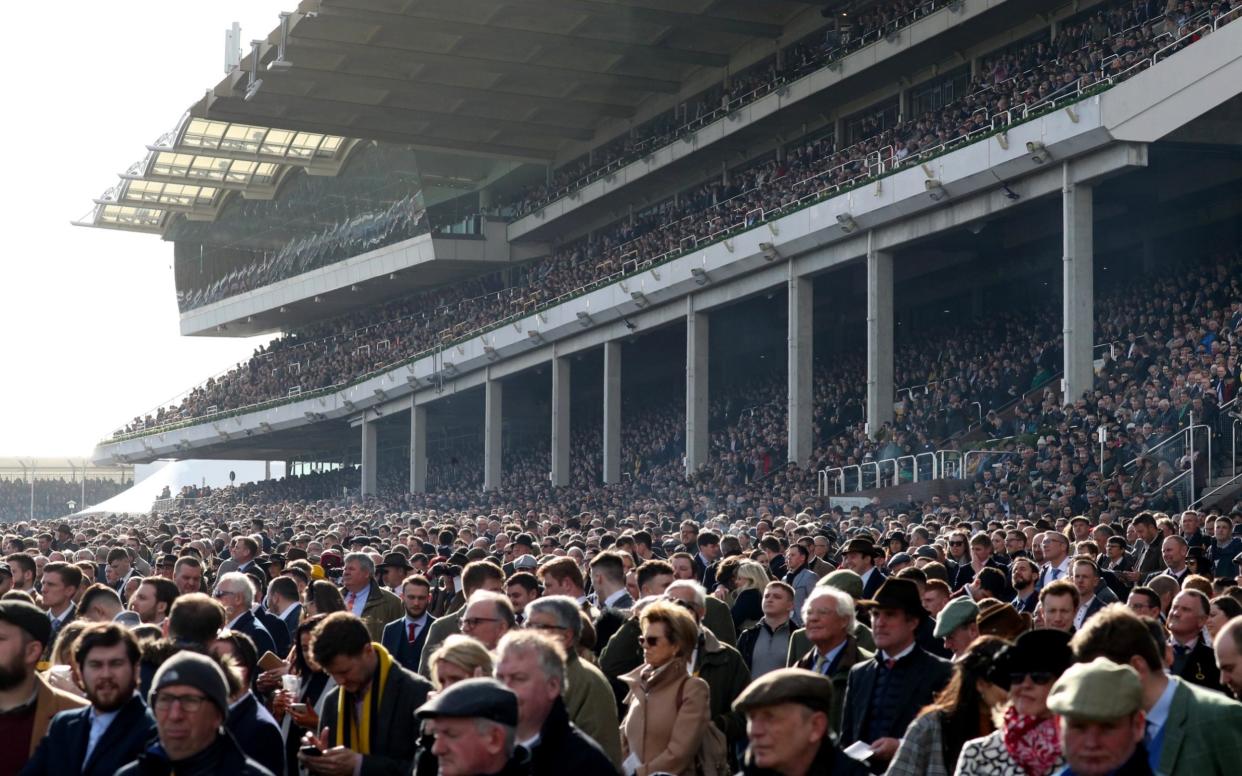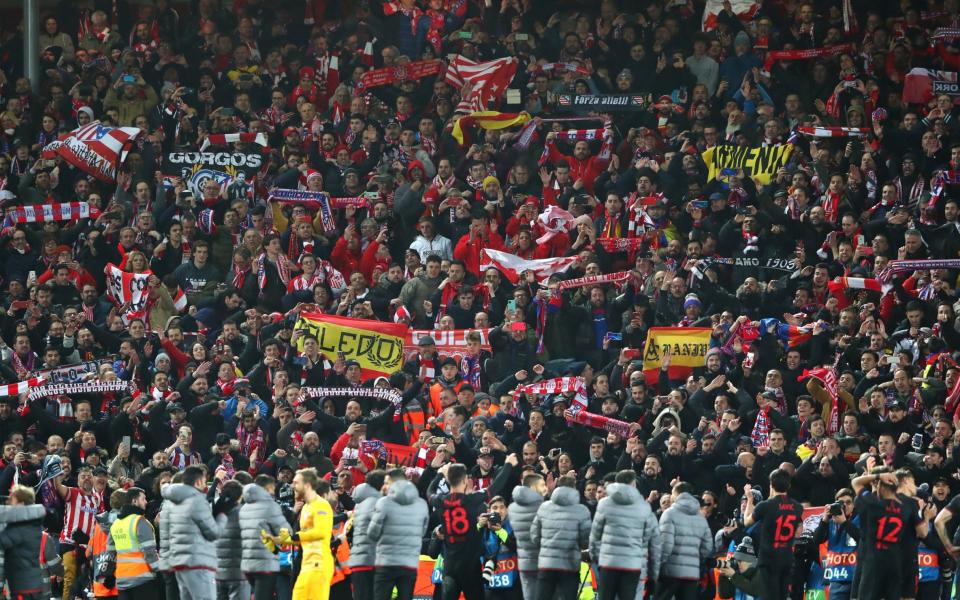Cheltenham Festival and Liverpool vs Atletico could have led to premature deaths, research shows

Staging two major sporting events in March, after coronavirus had begun spreading across the country, meant that “people will have probably died prematurely”, according to a scientist leading a major Covid-19 tracking project.
Professor Tom Spector, from King’s College London, told the BBC that the failure to shut down sports events earlier “caused increased suffering and death that wouldn't otherwise have occurred”.
According to Radio 4's File on 4, which will be broadcast on Tuesday night, there was a significant local rise in cases following the Cheltenham Festival and Liverpool’s Champions League tie against Atletico Madrid, which were both held during the week of March 10.
It follows a separate investigation by The Telegraph, published last month, which showed that three mass gatherings - the Cheltenham Festival, the Liverpool v Atletico match and the Manchester derby in the Premier League - may have led to additional deaths in the local area.
All three events, each attended by tens of thousands of people, many from overseas, were held between March 8 and 13 - after the virus arrived in Britain but ahead of the Government lockdown.
Analysis by Edge Health, a leading supplier of analysis to the NHS and which was revealed by The Telegraph, showed that each fixture was linked to between 2.5 and 3.5 additional deaths per day at local hospitals 20 to 35 days later, compared with similar hospital trusts which were used as a control.
New analysis comes from the Covid-19 Symptom Study, which has been reported on Tuesday by the BBC, and shows an estimated 5-6 per cent of the population, aged 20 to 69, having symptoms in the Cheltenham and Liverpool regions. Spector said rates of cases locally "increased several-fold".
At the time, Government ministers maintained the scientific evidence did not point to mass gatherings being a major factor in the spread of the virus.
On March 11 – the second day of the festival and the day of the Liverpool vs Atletico match – the World Health Organization declared coronavirus a pandemic. Madrid was already in lockdown at that stage but around 3,000 visiting fans were allowed to travel to Liverpool and attend the match.

"I think sporting events should have been shut down at least a week,” said Prof Spector.
The Government has said that “there are many factors that could influence the number of cases in a particular area”, including population density, age, general health, and the position of an area on the pandemic curve.
"It is our absolute priority to protect people's health and our advice on coronavirus is the result of direct, continuous consultation with medical experts,” said a government spokesperson.
The Jockey Club stressed that they had followed "clear and ongoing guidance" from the Government and science experts in staging the event, including a range of additional hygiene measures.
Mass events linked to the spread of coronavirus are not only a British phenomenon. The packed apres-ski bars of European ski resorts are linked to thousands of cases across Europe and religious gatherings have been blamed for significant outbreaks in Asia. A football match played between Atalanta and Valencia in Milan in February has been described as a "biological bomb".

